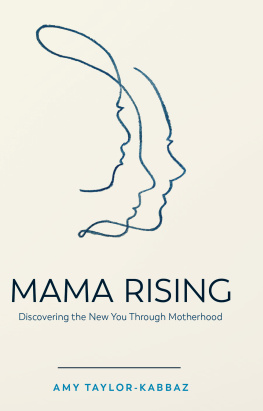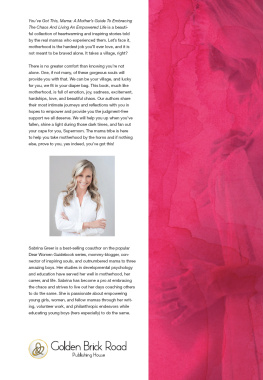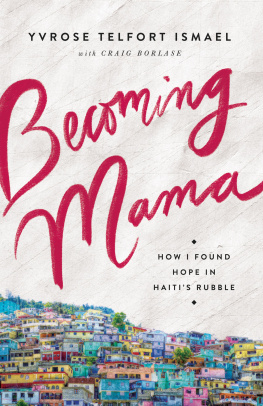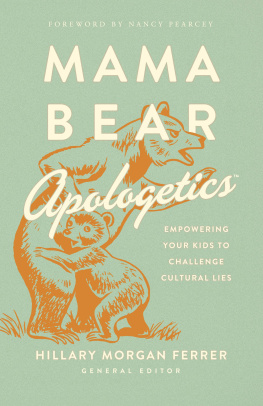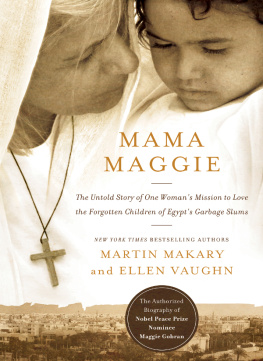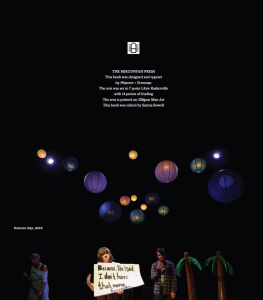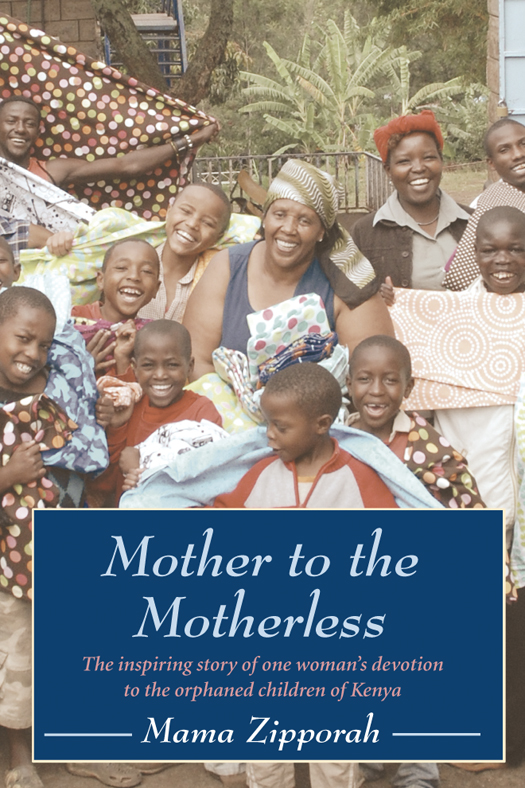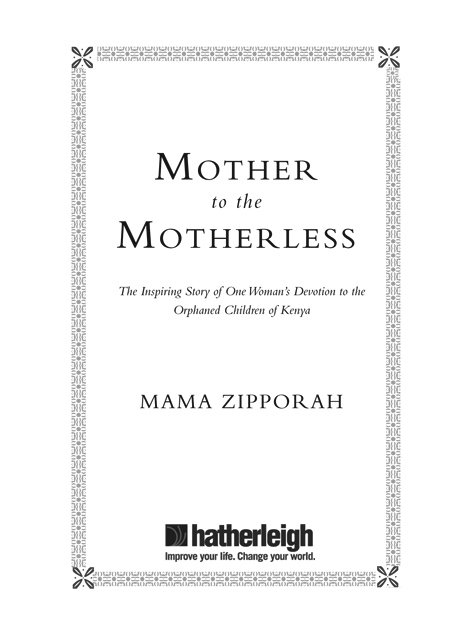
Hatherleigh Press is committed to preserving and protecting the natural resources of the earth. Environmentally responsible and sustainable practices are embraced within the companys mission statement.
Visit us at www.hatherleighpress.com and register online for free offers, discounts, special events, and more.
Mother to the Motherless
Copyright 2014 Mama Zipporah
Library of Congress Cataloging-in-Publication Data is available upon request.
ISBN: 978-1-57826-493-3
eBook ISBN: 978-1-57826-494-0
All rights reserved. No part of this book may be reproduced, stored in a retrieval system, or transmitted, in any form or by any means, electronic or otherwise, without written permission from the publisher.
Cover Design by Carolyn Kasper
Interior Design by Cynthia Dunne
v3.1
CONTENTS
INTRODUCTION

If you do not stand firm in your faith, you will not stand at all. Isaiah 7:9
I MAGINE RECEIVING DIVINE insight from God. Imagine witnessing miraculous healings that defy scientific explanation, or discovering that torch-bearing angels protect your family throughout the night. Imagine feeding hundreds daily without a penny to your name, or simply having your unspoken needs met daily by God. These are all blessings that I have experienced throughout my life of faith. Even during times of great persecution, I have stood firm in my faith. Through my experiences, I have come to personally understand the truth behind Isaiah 7:9: If you do not stand firm in your faith, you will not stand at all.
God has blessed me with a great compassion for abused and abandoned children, and has placed a strong burden on my heart to become a voice for those too young to represent themselves. Throughout my childhood, God protected and upheld me, calling me to become something greater than anything my family could have imagineda mother to the motherless. Now, even people I do not know greet me by shouting Mama Zipporah! I am honored that God would choose to work through me.
My vision of a home built specifically to tend to orphaned children in Kenya was in truth a vision from God. It was because of His call that I began The Huruma Childrens Home. Developing an environment that would allow these children to grow up in a solid Christian family has become my lifes purpose. And since the day my husband Isaac and I opened the doors of our small mud hut in August of 1990, God has done nothing but bless our ministry and provide for our needs, protecting us and even blessing us with his miracles. The growth and blessings that I and my children have received are not the result of any efforts I have made. Rather, it is the work of the Lord which has caused our ministry to prosper. And, to honor the mighty work which He has done, I wish to make His glory known throughout the nations.
Give thanks to the Lord, call on his name; make known among the nations what he has done. Sing to him, sing praise to him; tell of all his wonderful acts. Psalm 105:1
Contained within this book you will find my life story. I do not share this story to bring glory upon myself; rather it is to make known the glory of our Lord and Father. Without Him, my testimony would be meaningless. As it is written in Matthew 5:16, Let your light shine before men, that they may see your good deeds and praise your Father in heaven. I am blessed that God has chosen me, an uneducated woman, to perform such wonders through Him.
This book, my testimony, is dedicated to His glory. May all praise and honor be unto Him. I also dedicate this book to my late husband, Pastor Isaac Kamau, and my children, Caroline Naiserian, Catherine Sialo Butt, and George Layian for supporting and believing in what God called me to do. With their help, and the help of many others, I have been able to bring motherless children into our family, give them a home, and share the little we have with them.
Thank you, Lord.
Mama Zipporah
Executive Director, Huruma Childrens Home
FAITH IN THE DARK

T HE POWER HAS gone out. It would seem as though the power company has no respect for those in the midst of worship. The sun has already tucked itself behind the Ngong Hills, and the room is filled with the gentle light of the moon as it makes its way through the open windows. It is Wednesday, the customary time for the children of Huruma to share in their evening fellowship of praise and worship, testimonies and speaking.
But without electricity, the keyboard no longer plays; the microphone is unable to project a voice. You are barely able to decipher the silhouettes of bodies surrounding you.
Yet why should something as insignificant as electrical power put an end to fellowship? Were we not able to praise God long before whats-his-name discovered electrical current? But with nearly 150 of us packed into the small church, no one was quite sure what would happen next. If everyone were to exit at once, someone was likely to be trampled upon in the dark.
Before I knew it, someone had grabbed a drum and began to pound out a rhythm. Next, one of the homes older children began to sing in a voice comparable to that of an angel. Before I knew it I was surrounded by children dancing and singing in the dark. They sang not to please anyone, nor was their dance meant to impress the ones standing beside them; we could only see the shadows of movement.
This harmonious movement was for God. They danced in sincerest gratitude for the blessings in their lives. Despite the darkness within the small tin church, the orphaned children praised God in a moving display of heartfelt affection. They had no audience on Earth; it was all between them and the Lord.
This was worship in its truest form.
These precious dancing silhouettes have been given to my care, and I look upon them with the pride of a mother. My life has come a long way and much has been accomplished, but none of it was because of me.

I was born, one quiet night in January of 1957, in a place called Githunguri. Outcasts of Nairobi City in Kenya, my parents Peter Kamunge Kimani and Unice Wanjiru welcomed me as their first daughter. But this welcome was not without resentment, as my father very much wanted a boy. They had already had twins before me: Kimani and Mbuiya were born in 1954, but unfortunately, they had both died when they were only two years old. In those days, most parents did not strategically plan or space out their children, as is the custom today. It was normal to give birth to children every year, which often resulted in a very large familyin our case, three boys and two girlswithin a very short span of time. The seemingly large gap between my late siblings birth and mine was not intended, either; rather, it was dictated by the prevalence of political destabilization happening at the time in our country.



